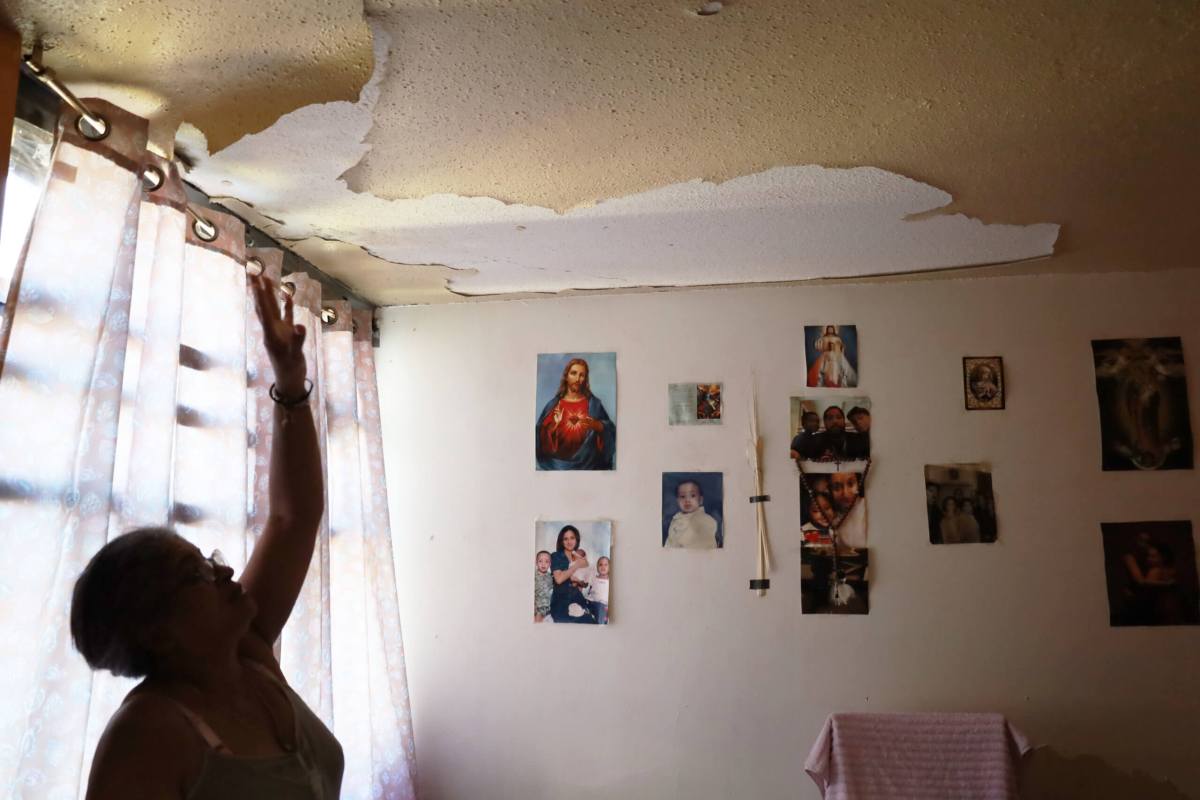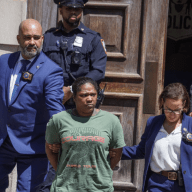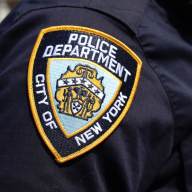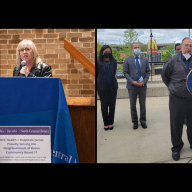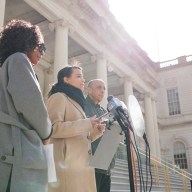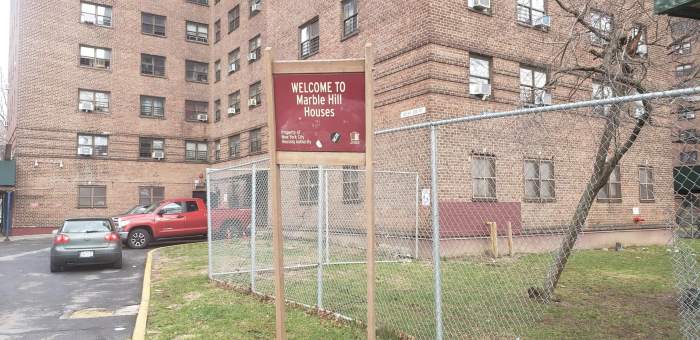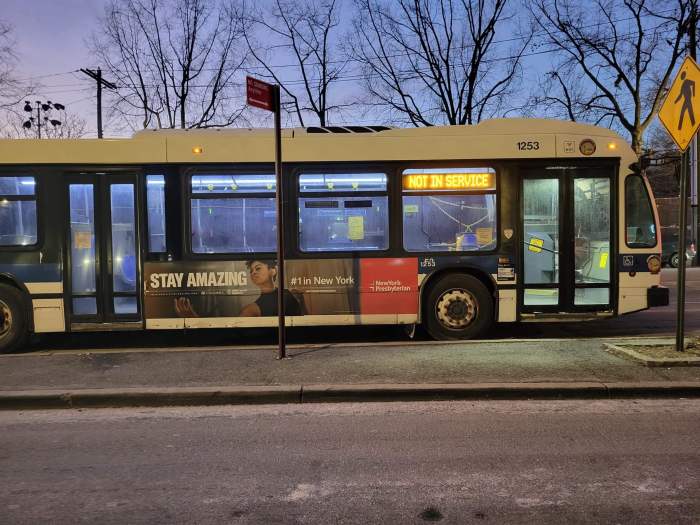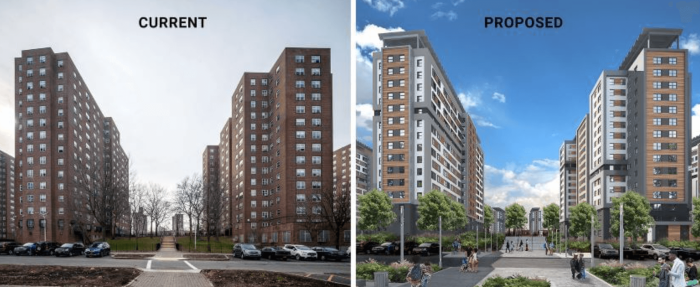A polar vortex that swept through the Northeast this past weekend led to a two-day spell of single-digit temperatures that sent an icy chill throughout New York City and tested the limits of its aging public housing infrastructure.
In the winter prior, residents of NYCHA’s Fort Independence Houses, located in Kingsbridge Heights at 3340 Bailey Ave., noted a lack of heat left many of the building’s children and the elderly in inhumane conditions beginning in October 2021. And not much has changed more than a year later.
After temperatures reached as low as 4 degrees on a Saturday, Feb. 4, 19-year-old Emily Ayala sprang into action at around 3 a.m. early Sunday morning when a leak caused by a boiler — that was flagged as defective by the NYC Department of Buildings on Jan. 29 — emitted a flood of water and heat vapor into her third-floor apartment, leading her and her younger sister to vacate their apartment in the middle of the night.
Ayala, along with her sister, trudged through scalding hot water and an odorous gas and fog before her mother and FDNY officials arrived minutes later. Ayala suffered minor bruising to her ankle, but is glad that the worst outcome — not uncommon in a historically neglected public housing unit — was avoided.
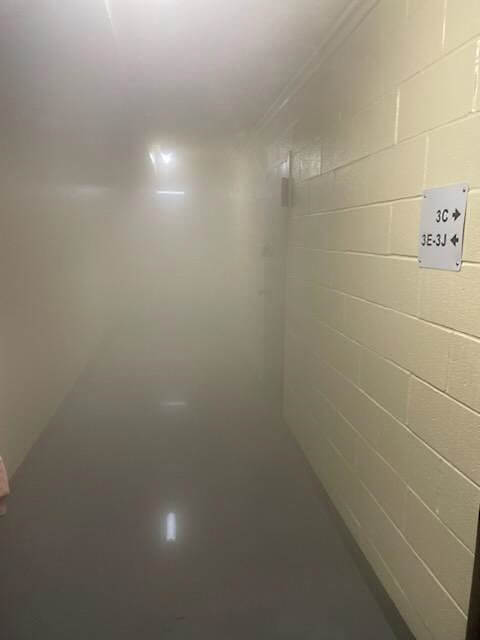
The family was able to return to their home on Monday and interrupted heat service was restored before Tuesday morning.
“In the winters, it’s kind of weird sometimes. We get heat and sometimes we don’t, and usually when we don’t get heat, it is freezing in here. probably colder in here than outside,” Ayala told the Bronx Times. “I’ve lived here since I was nine. I still have most of my ceiling missing so if it’s not one thing that needs a repair, it’s another thing.”
According to a NYCHA spokesperson, the leak in a third-floor apartment came from a ruptured heating line in the apartment’s baseboard causing the line to freeze due to the weekend’s icy temperatures.
When asked by the Bronx Times about the defective boiler, NYCHA officials pointed to aging infrastructure and federal disinvestment in public housing. According to a NYCHA fact sheet, 175 out of NYCHA’s 302 developments are 50 years or older, including 36 developments that are 70 years or older.
The Bronx is the city’s coldest borough, receiving 42,050 unique heat complaints throughout 2022, according to an annual study by RentHop, an apartment-search web platform. Eighty percent of the 20 coldest NYC neighborhoods reside in the Bronx, and heat and hot water complaints in all boroughs rose by 24% from Oct. 1, 2022 to Jan. 10.
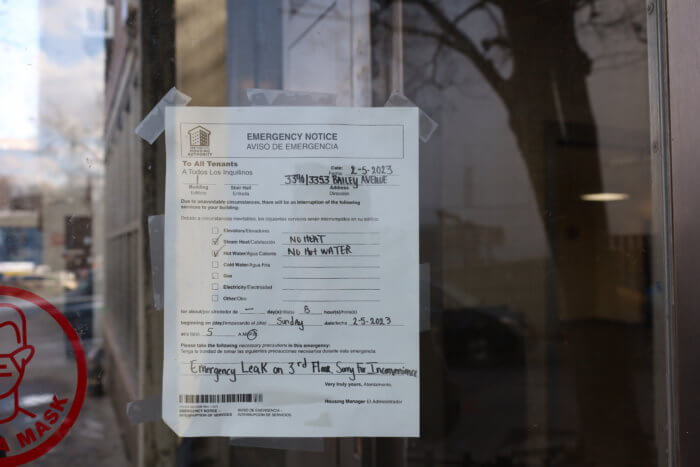
NYC’s public housing residents also saw a 25% spike in heat and hot water outages as NYCHA experienced 3,605 utility outages during the most recent heat season from the start of October 2021 to the end of May 2022.
Jessica Sosa, Ayala’s mother, said that it’s more than federal disinvestment that is making winters unbearable in public housing. She says it’s a lack of follow-through from NYCHA and its building managers to address maintenance issues — a cycle in which repairs for broken and aging infrastructure, residents say, are put in a months-to-years-long state of limbo.
According to THE CITY, it took 49 days on average for NYCHA residents to have their repair tickets completed or resolved. But some tenants in Fort Independence have to wait until the summer for repair requests they made before the new year.
“Fortunately, no one was seriously injured, and the worst case scenario never happened,” said Sosa, who said flooding from the incident led to damage to a bulk of their living furniture. “But it shouldn’t take a tragedy for NYCHA to make timely repairs … to make sure our heat is on during the coldest months. … Just because we live in public housing doesn’t mean we deserve to suffer through this.”
Throughout Fort Independence’s 21-floor high, 10-apartment wide landscape, tenants are frustrated with the lack of preventive steps by NYCHA and its on-site landlords to protect residents from the deleterious effects of a deteriorating building, including defective elevators that have injured and trapped residents in recent years.
Chasmee Malave, who has lived in the building for 24 years, has had to be creative in addressing a water leak in her home that has resulted in swollen tiles and floors since Thanksgiving. With no appointment for repairs available until August, at the earliest, Malavene has had to rely on disposable underpads to stop the water flow.
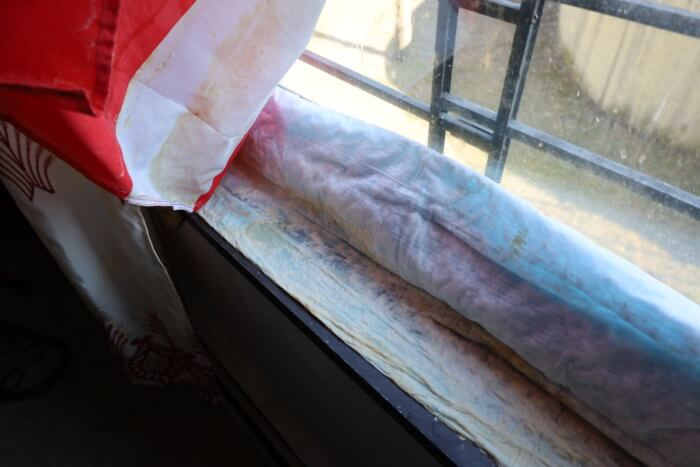
Like Malave, some residents have water stains on their walls and window sills. Their decor is wallpapered by letters and notices from NYCHA indicating the presence of lead, mold and water in living spaces, but rarely are action-steps such as inspections or repairs set in stone or fulfilled.
“They told me that they can’t do work until August 7. Today they were supposed to come and check, but they called me and told me they’re coming next Wednesday because they couldn’t make it (Monday),” said Malave.
In a December hearing on NYCHA’s preparedness for the winter “heating system,” NYCHA officials claimed progress in their efforts to fix and replace the developments’ aging heat infrastructure and reducing the average time of heat outages and pushing for new innovation in apartment heating.
NYCHA saw its average time to fix a heat outage rise from 7.3 hours in 2020-2021 to 8.3 hours in 2021-2022, according to the October Mayor’s Management Report.
The housing authority will be monitoring the progress of apartment-friendly air heat pump units, set to be installed in Woodside houses sometime this year, with the long-range goal to transition away from its boiler and distribution systems.
— ET Rodriguez contributed to this report

